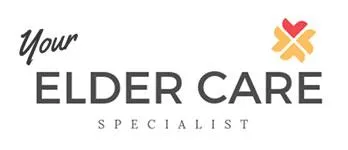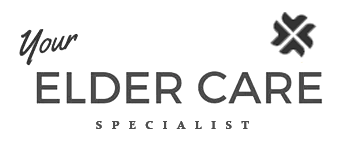
How to Navigate Medical Appointments for Seniors - Essential Tips for Caregivers
Managing medical appointments for elderly loved ones can feel overwhelming, especially when balancing numerous doctor visits, medications, and treatment plans. By establishing a few organizational strategies and being proactive, you can ensure your loved one receives the best possible care. This guide offers practical advice for caregivers to navigate the complexities of medical appointments with confidence and clarity.
Preparing for Medical Appointments: Gathering and Organizing Information
Preparation is the first step to making any medical appointment successful. Before each visit, take time to gather essential health information, including a list of current medications, recent symptoms or changes in health, and past medical history. Creating a binder or digital file for these documents can be invaluable. Having all the paperwork ready enables you to quickly and accurately provide the healthcare professionals with necessary information and respond to medical concerns.
In addition, make a list of questions or concerns to discuss during the appointment. Writing down questions ahead of time helps ensure you don’t miss essential details, especially if there are new or recurring symptoms. Consider asking about potential health issues related to specific conditions, medication management, or dietary requirements. A clear list of questions can guide a two-way conversation with healthcare providers, leading to more informative discussions and ensuring both you and your loved one leave the doctor appointment feeling understood and supported.

Communicating Effectively with Healthcare Providers
Clear and open communication with healthcare professionals is key to understanding and managing your loved one’s medical care. During the appointment, take notes to capture the details of treatment recommendations, next steps, or additional details about a diagnosis. Don’t hesitate to ask for clarification if any medical jargon is confusing or if explanations of treatment options seem unclear.
Effective communication means fostering a two-way conversation, where you feel comfortable seeking answers and sharing observations. This approach allows you to actively participate in discussions about your loved one’s health and advocate for their needs, ensuring they receive high-quality care. Consider discussing any follow-up appointments that might be needed and inquire about supportive services that could benefit your loved one, from therapy to community programs. Good communication helps bridge the gap between home care and medical care, creating a continuum of support.
Tracking Medications and Treatment Plans
For caregivers, organizing medications and treatments is a critical responsibility. Seniors often take multiple prescriptions, so keeping track of dosages, schedules, and potential side effects can be challenging. A comprehensive list of current medications, complete with dosage information, helps prevent adverse interactions and allows healthcare providers to make informed recommendations. Medication reminders, such as alarms or pill organizers, can support daily adherence to prescribed treatments.
There are also digital tools and apps designed for medication management that send alerts for each dose and keep a record of when medications are taken. By tracking this information, you can help prevent missed doses, ensuring your loved one follows the prescribed regimen and avoids complications. If new medications are introduced, be sure to understand the expected effects, possible side effects, and any necessary dietary adjustments. Regularly reviewing and updating the medication list after each doctor appointment helps ensure everything is accurate and current.

Ensuring Follow-Up and Continuity of Care
Medical care doesn’t end after the appointment—caregivers must also follow through with any instructions, referrals, or additional appointments. Before leaving the medical office, make sure you have a plan for follow-up appointments, tests, or other recommended steps to ensure continuity of care. Each step in the plan helps reinforce the quality of care your loved one receives.
Having a reliable system for tracking appointments can also make follow-up care more manageable. Many caregivers use calendar systems to track upcoming visits and any special preparation that might be required. Careful planning helps you stay on top of each doctor appointment, treatment adjustment, or further assessments, allowing you to monitor your loved one’s health consistently. By coordinating these steps, you play a key role in supporting the long-term well-being of your loved one and ensuring their needs are met over time.
Professional Support Options: When to Seek Additional Help
Managing medical appointments and care coordination is demanding, and caregivers shouldn’t hesitate to seek extra help when needed. Professional home care services or health aides can offer valuable support, especially if you have additional responsibilities or need respite care. If you notice signs that your loved one’s needs are becoming difficult to manage alone—such as increased physical limitations or cognitive issues that affect their medication schedule—consider enlisting extra care.
Professional caregivers are skilled in medication management, health monitoring, and providing assistance with daily activities, making them a valuable resource for family caregivers. Services like in-home care or memory care facilities can ensure your loved one’s medical concerns are addressed with the highest quality of care. Consider looking into a senior care facility or community-based resources that offer in-home care and senior advocacy to ease the demands of caregiving and improve your loved one's quality of life.

Conclusion
Navigating medical appointments for seniors is a critical part of ensuring their health, well-being, and independence. By preparing thoroughly, maintaining open communication with healthcare providers, and staying organized with medications and follow-up care, caregivers can play an active role in supporting their loved ones’ medical needs. If you’re ready to take the next step in supporting your senior’s health journey, reach out to Your Elder Care Specialist for guidance in accessing professional home care or caregiver resources in your area.


